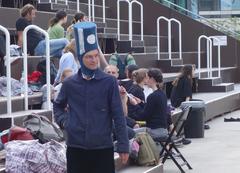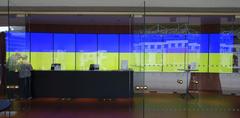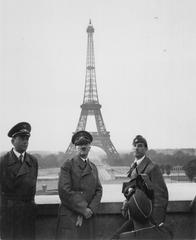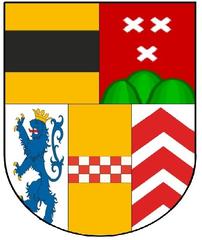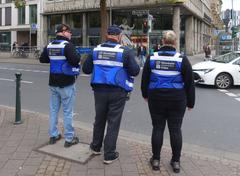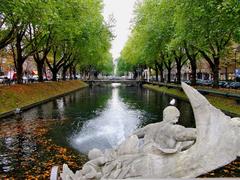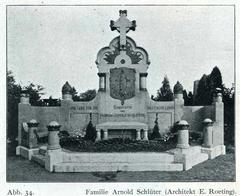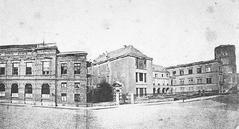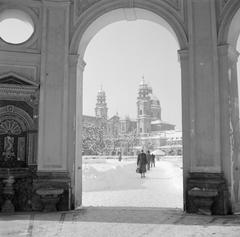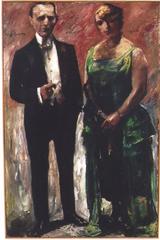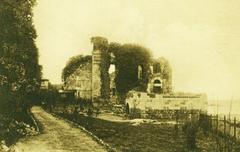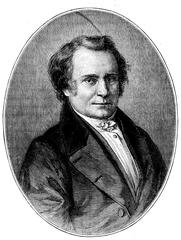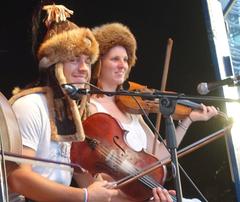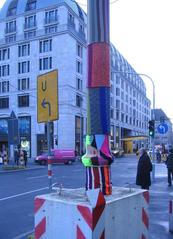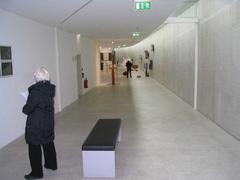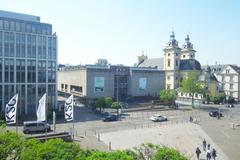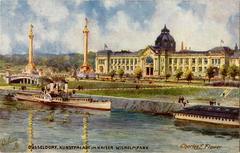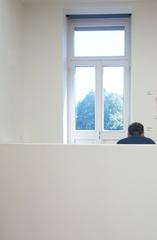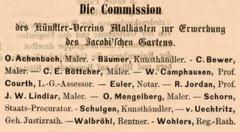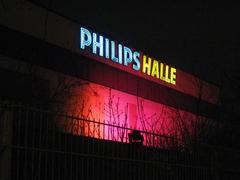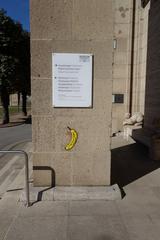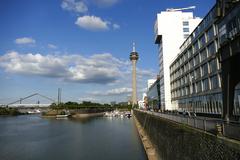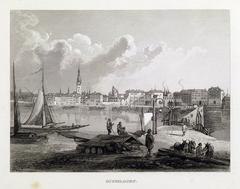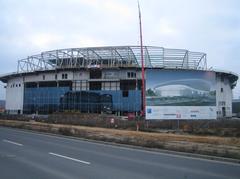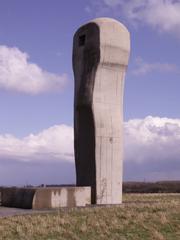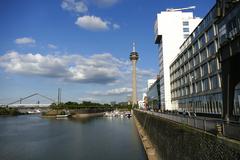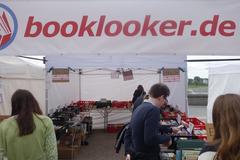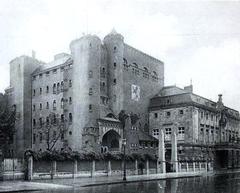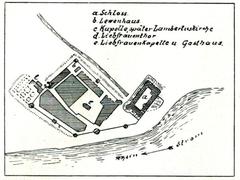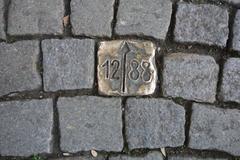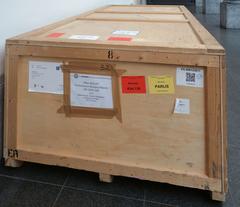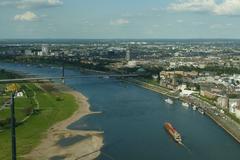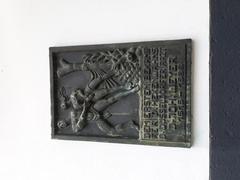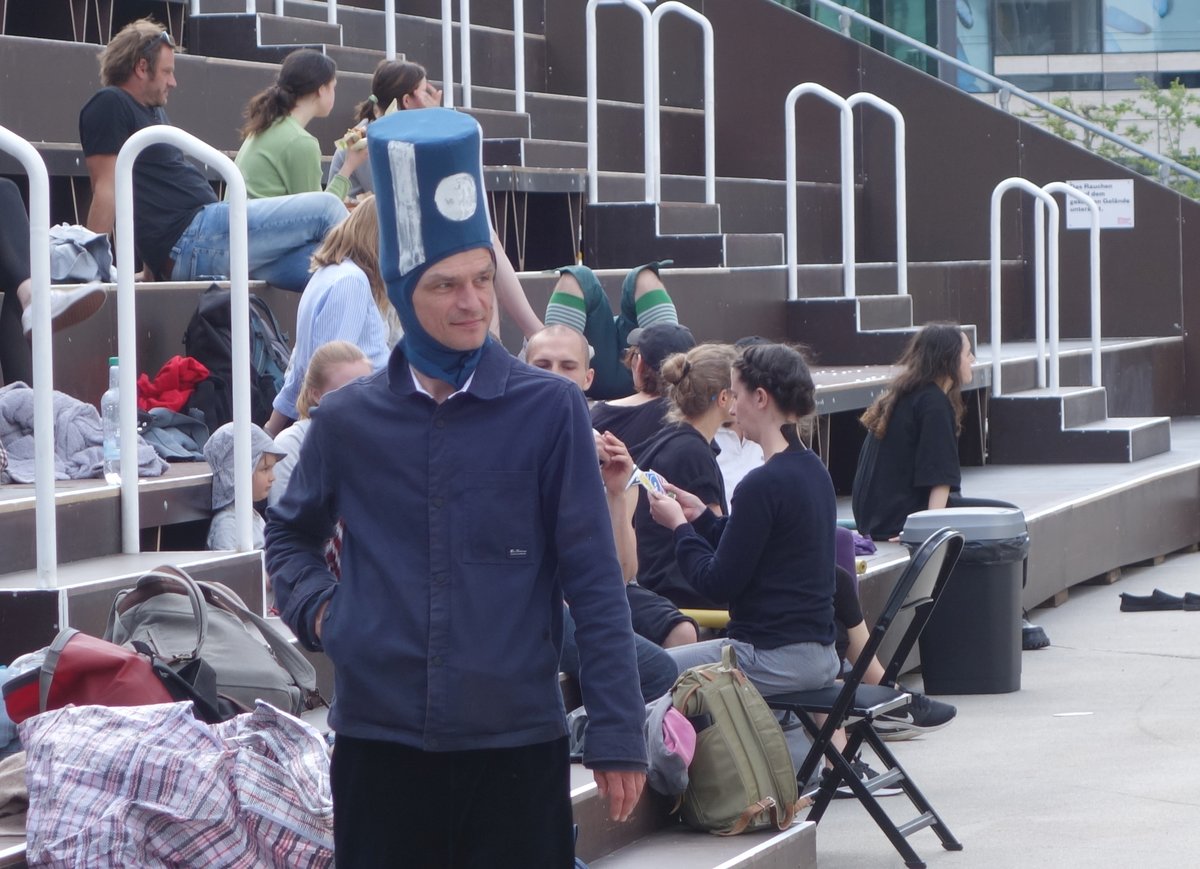
Düsseldorfer Schauspielhaus: Visiting Hours, Tickets, and Comprehensive Guide to Düsseldorf’s Historic Theatre
Date: 14/06/2025
Introduction
The Düsseldorfer Schauspielhaus is a cornerstone of cultural life in Düsseldorf, Germany. This renowned theater not only embodies the city’s rich artistic traditions but also stands as an architectural marvel of post-war modernism. With a legacy that spans from 18th-century theatrical roots to contemporary innovation, the Schauspielhaus is a must-visit for theater enthusiasts, architecture admirers, and anyone seeking to experience Düsseldorf’s vibrant cultural scene.
This detailed guide provides an in-depth look at the history, architecture, visitor information, ticketing, accessibility, and nearby attractions of the Düsseldorfer Schauspielhaus. Whether planning your first visit or returning for another memorable performance, you’ll find everything you need to make the most of your experience.
Contents
- Early Theatrical Roots
- Post-War Revival & Institutional Foundation
- Architectural Vision & Construction
- Inauguration & Early Development
- Funding & Institutional Structure
- Artistic Leadership & Evolution
- Renovation & Modernization
- Performance Spaces
- Visiting Hours & Ticketing
- Accessibility & Services
- Travel Tips & Nearby Attractions
- Special Events & Photographic Spots
- Cultural Impact & Legacy
- FAQs
- Conclusion & Visitor Tips
- References
Early Theatrical Roots
Theatrical tradition in Düsseldorf dates back to the mid-18th century. In 1747, the Gießhaus, a former foundry, was transformed into a theater for Elector Karl Theodor, marking the city’s first permanent venue for dramatic arts. This laid the foundation for Düsseldorf’s enduring commitment to theater, which would flourish over the centuries (mkw.nrw).
Post-War Revival & Institutional Foundation
Much of Düsseldorf’s cultural landscape was devastated during World War II. In 1951, the establishment of the Neue Schauspiel GmbH, led by the legendary Gustaf Gründgens, heralded a new era for the city’s theater. Under Gründgens’ direction, the Schauspielhaus quickly gained a reputation for artistic excellence, innovation, and social engagement (mkw.nrw).
Architectural Vision & Construction
Recognizing the need for a modern venue, the city commissioned a new building in the 1960s. Architect Bernhard Pfau’s design was selected for its bold, organic forms and bright white façade, contrasting with the neighboring Dreischeibenhaus’s modernist lines. Construction began in 1965 and concluded in 1969, with the building officially opening in 1970. The Schauspielhaus’s sculptural silhouette and flowing lines make it one of Germany’s most distinctive post-war structures (visitduesseldorf.de).
Inauguration & Early Development
The opening of the new Schauspielhaus building marked a major milestone for the city and the region. As North Rhine-Westphalia’s only state theater, it quickly became a leading venue for German-language stage productions, drawing prominent directors, actors, and designers from across Europe (mkw.nrw).
Funding & Institutional Structure
The Düsseldorfer Schauspielhaus is jointly sponsored by the City of Düsseldorf and the State of North Rhine-Westphalia. This partnership ensures stable financial and administrative support, enabling the theater to maintain high standards and serve as a flagship for the performing arts (mkw.nrw).
Artistic Leadership & Evolution
After its foundational years under Gustaf Gründgens, the Schauspielhaus has continued to thrive under visionary leadership. Since 2016/2017, Wilfried Schulz has steered the theater, reinforcing its dual commitment to classical repertory and contemporary, socially relevant productions (mkw.nrw). The Junge Schauspiel division excels in youth and participatory theater, fostering the next generation of artists (Westwind Festival 2025).
Renovation & Modernization
To meet evolving artistic and audience needs, the Schauspielhaus has undergone several modernization phases. A major renovation, completed for its 50th anniversary in 2019/2020, included restoration of its iconic façade, improved accessibility, upgraded technical systems, and sustainable design elements (Ingenhoven Architects).
Performance Spaces
The Schauspielhaus features several versatile venues:
- Großes Haus (Great Hall): Main auditorium with 760 seats
- Kleines Haus (Small Hall): Smaller venue for experimental productions, seats 300
- Unterhaus: Intimate basement stage for avant-garde and contemporary works
- Junge Schauspiel: Youth theater at Münsterstraße 446
- Bürgerbühne: Community stage fostering participatory projects
Visiting Hours & Ticketing
- Box Office: Open 10:00 AM – 6:00 PM (Mon–Fri), 10:00 AM – 2:00 PM (Sat). On performance nights, the box office remains open until 30 minutes after curtain (dhaus.de).
- Performance Times: Usually evenings, around 7:30 PM; check the official website for current schedules (dhaus.de).
- Tickets: Purchase online, by phone, or in person. Prices range from €10–€40, with discounts for students, seniors, and groups. Early booking is recommended for high-demand shows.
Accessibility & Services
The Schauspielhaus is fully committed to accessibility:
- Wheelchair-accessible entrances, elevators, and designated seating
- Assistive listening devices on request
- Accessible restrooms and cloakrooms
- Guided tours (including architectural and backstage tours) available by appointment
- Visitor services provide assistance and information in multiple languages
Travel Tips & Nearby Attractions
Located at Gustaf-Gründgens-Platz 1, the theater is easily reached by tram, bus, or a 10-minute walk from Düsseldorf Hauptbahnhof. Public transport is recommended due to limited city-center parking.
Nearby highlights:
- Altstadt (Old Town): Famous for its lively bars and traditional architecture
- Hofgarten Park: Düsseldorf’s oldest public park
- Kunstsammlung Nordrhein-Westfalen: Prestigious art museums (K20 & K21)
- Königsallee: Upscale shopping boulevard
- Numerous cafes and restaurants for pre- or post-show dining (The Tourist Checklist)
Special Events & Photographic Spots
The theater hosts festivals, premieres, and special events throughout the year, including the acclaimed Westwind Festival for young audiences. The building’s white, flowing façade and setting opposite the Dreischeibenhaus make it a favorite for architectural photography. Guided tours provide deeper insights into its design, history, and current productions.
Cultural Impact & Legacy
The Düsseldorfer Schauspielhaus is recognized as one of the German-speaking world’s most influential theaters. Its blend of tradition and innovation, combined with inclusive programming and a commitment to social dialogue, ensures its continued relevance and international acclaim (visitduesseldorf.de). The theater plays a vital role in Düsseldorf’s economy and cultural calendar, attracting visitors from around the world.
Frequently Asked Questions (FAQ)
Q: What are the visiting hours?
A: Box office hours are 10:00 AM – 6:00 PM (Mon–Fri), 10:00 AM – 2:00 PM (Sat). Performances usually start at 7:30 PM. Check the official website for current schedules.
Q: How do I buy tickets?
A: Tickets are available online, by phone, or at the box office. Early booking is advised.
Q: Is the theater accessible for visitors with disabilities?
A: Yes. The Schauspielhaus offers wheelchair access, assistive devices, and accessible facilities.
Q: Are there guided tours?
A: Yes, including architectural and backstage tours. Book in advance.
Q: What else can I see nearby?
A: Visit the Altstadt, Hofgarten, Königsallee, and local museums.
Q: Can I bring children?
A: Absolutely. The Junge Schauspiel program offers family-friendly shows and workshops.
Q: Is there a dress code?
A: Smart-casual attire is recommended.
Q: Do tickets include public transport?
A: Some tickets offer free public transport on show days. Confirm when booking.
Conclusion & Visitor Tips
The Düsseldorfer Schauspielhaus masterfully combines historical depth, architectural distinction, and dynamic programming. Its legacy, from 18th-century roots to ongoing innovation, reflects Düsseldorf’s dedication to the arts. Visitors can expect world-class performances, engaging educational initiatives, and convenient access to the heart of the city’s culture.
Visitor Tips:
- Book tickets early, especially for weekend performances.
- Arrive at least 30 minutes before showtime to enjoy the ambiance.
- Explore nearby attractions for a full cultural day out.
- Download the Audiala app for easy ticketing and the latest updates.
For detailed and current information, visit the official Düsseldorfer Schauspielhaus website.
References
- mkw.nrw
- dhaus.de
- Ingenhoven Architects
- The Tourist Checklist
- visitduesseldorf.de
- Westwind Festival 2025
For more cultural guides and insider tips, follow us on social media and explore our related articles on Düsseldorf’s top attractions.
